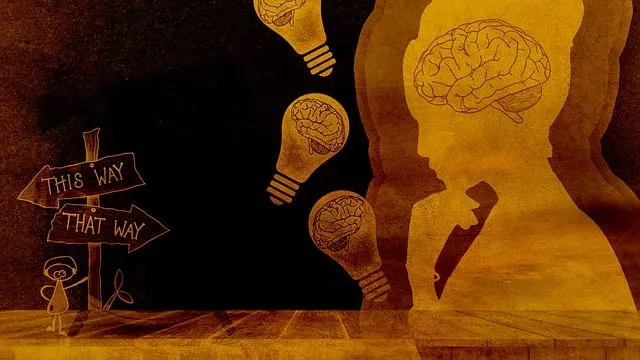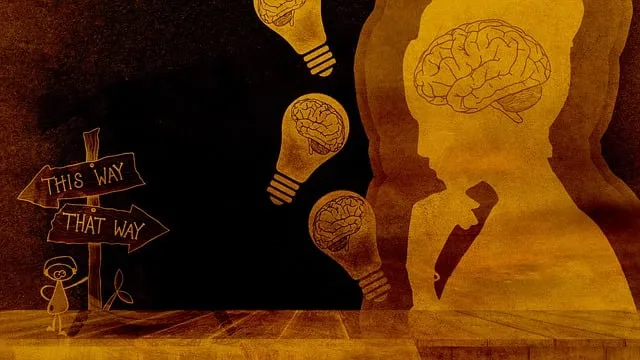Centennial Kaiser Permanente Mental Health prioritizes cultural sensitivity to bridge diverse patient needs. By recognizing ethnicity, religion, identity, and socioeconomic factors, they offer tailored care with practices like Mindfulness Meditation. Risk management planning and inclusive environments foster trust, addressing systemic issues and improving outcomes for all communities. Empathy-building strategies enhance therapeutic bonds, ensuring personalized support for holistic healing.
In an increasingly diverse society, cultural sensitivity is paramount in mental healthcare. This article explores how professionals at Centennial Kaiser Permanente Mental Health can navigate cross-cultural practices effectively. We delve into understanding cultural diversity, identifying barriers and biases that may arise, and strategies for inclusive therapy tailored to diverse populations. Additionally, it highlights the significance of fostering trust and respect within therapeutic relationships, ensuring culturally competent care that respects and honors every patient’s unique background.
- Understanding Cultural Diversity in Mental Healthcare
- Barriers and Biases: Challenges in Cross-Cultural Practice
- Inclusive Therapy: Adapting Approaches for Diverse Populations
- Fostering Trust and Respect in therapeutic Relationships
Understanding Cultural Diversity in Mental Healthcare

In the diverse landscape of mental healthcare, understanding cultural sensitivity is paramount, especially at progressive institutions like Centennial Kaiser Permanente. The concept of cultural diversity encompasses a wide array of factors, including ethnicity, religion, gender identity, sexual orientation, and socioeconomic status. Each individual brings unique experiences and perspectives shaped by their cultural background, which significantly influence how they perceive and interact with mental health services. For instance, certain communities may have distinct beliefs about mental illness, treatment preferences, or communication styles that require tailored approaches to ensure effective care.
By recognizing these differences, mental health professionals at Kaiser Permanente can deliver culturally competent care. This involves integrating practices such as Mindfulness Meditation into therapeutic routines to cater to diverse patient needs and backgrounds. Moreover, implementing robust Risk Management Planning for Mental Health Professionals and thorough Risk Assessments ensures a safe and inclusive environment that respects individual cultural identities. These measures not only enhance patient outcomes but also foster trust and rapport between healthcare providers and the communities they serve.
Barriers and Biases: Challenges in Cross-Cultural Practice

Cultural sensitivity is a critical aspect of mental healthcare practice, as it helps to bridge the gap between diverse patient populations and healthcare providers. However, navigating cross-cultural interactions within the context of mental health care can present significant barriers and biases. These challenges often stem from unconscious stereotypes, language differences, and varying communication styles across cultures. For instance, at the Centennial Kaiser Permanente mental health center, professionals encounter patients from varied ethnic backgrounds, each bringing their unique cultural perspectives and expectations.
Understanding these nuances is essential to delivering effective care. Resilience Building and Social Skills Training can be valuable tools to foster empathy and improve cross-cultural interactions. By implementing Empathy Building Strategies, healthcare providers can overcome barriers, create a safe space for patients to express themselves, and ultimately enhance the therapeutic process. Such initiatives not only promote cultural sensitivity but also contribute to better patient outcomes.
Inclusive Therapy: Adapting Approaches for Diverse Populations

At Centennial Kaiser Permanente mental health services, recognizing and embracing cultural diversity is a cornerstone of inclusive therapy. Adapting therapeutic approaches to cater to diverse populations ensures that every patient receives care tailored to their unique background, beliefs, and experiences. This means going beyond language translation to incorporate cultural nuances in treatment plans. For instance, understanding the impact of systemic racism, immigration stress, or cultural taboos related to mental health can significantly enhance the effectiveness of therapy.
By incorporating empathy-building strategies and burnout prevention techniques, mental healthcare professionals foster a supportive environment that boosts patient confidence. This might involve integrating culturally relevant activities, using family or community involvement in therapy, or adapting communication styles to align with patients’ preferences. Such personalized care not only improves treatment outcomes but also strengthens the therapeutic alliance, ultimately contributing to the holistic well-being of our diverse communities.
Fostering Trust and Respect in therapeutic Relationships

In the diverse landscape of mental healthcare, fostering trust and respect is paramount to establishing effective therapeutic relationships, particularly within institutions like Centennial Kaiser Permanente Mental Health. Understanding cultural nuances is essential for creating an inclusive environment that caters to a wide range of patients. This involves recognizing and respecting individual differences in beliefs, values, and communication styles, which can significantly impact the emotional healing processes.
By integrating principles of mind over matter, such as tailoring therapeutic approaches to align with cultural backgrounds, mental health professionals at Kaiser Permanente can enhance patient engagement and outcomes. Public Awareness Campaigns Development initiatives that highlight cultural sensitivity further contribute to breaking down barriers and fostering a deeper connection between healthcare providers and patients from diverse communities.
Cultural sensitivity is a cornerstone of effective mental healthcare, as demonstrated by the diverse needs and challenges faced by patients at organizations like Centennial Kaiser Permanente. By recognizing and addressing barriers such as biases and language differences, mental health professionals can create inclusive therapy environments that foster trust and respect. Adapting therapeutic approaches to accommodate cultural diversity ensures better outcomes for all patients, reflecting the commitment of progressive healthcare providers like Kaiser Permanente to meet the unique needs of every individual.






